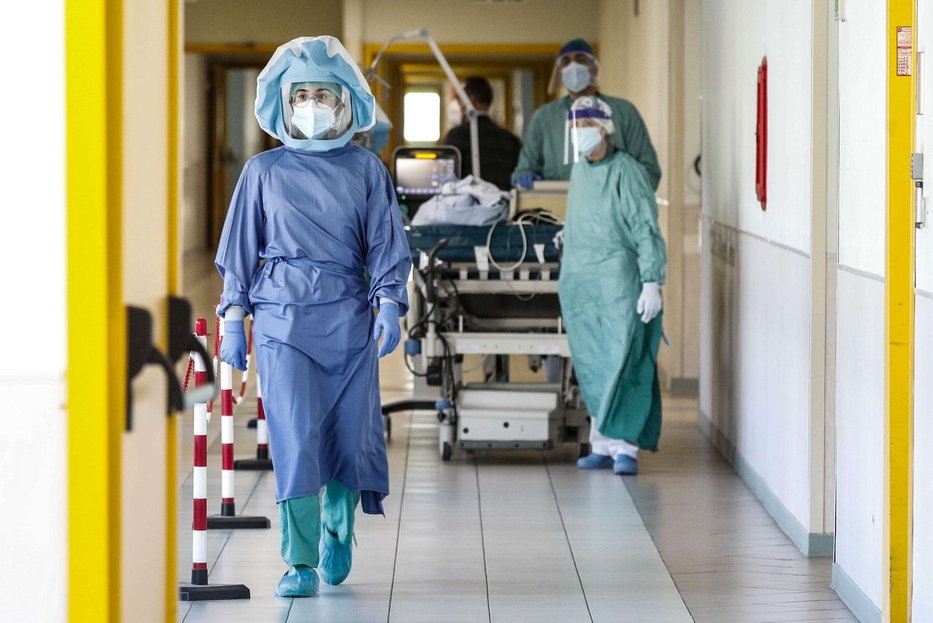There are repeated appeals from the scientific community and the main international health authorities not to let their guard down and calls to prepare adequately for the challenges of the cold season, when the attacks of all respiratory-transmitted germs will be concentrated. These appeals, however, do not seem to have particular effects either in public opinion or in governments. Both seem intent on pretending the pandemic is over. It is a dangerous illusion for two reasons, the first directly linked to Covid-19, the second to the sustainability of the entire National Health Service.
As regards the first reason, we are not preparing adequately for the autumn season, the vaccination campaign to protect the most fragile part of the languishing population: only a pale minority of the over 80s and even less than 60s are covered by a second booster dose and negative effects are already observed with a high number of deaths. Interventions to equip closed environments with adequate mechanical ventilation are delayed, especially in schools.
But the second reason is perhaps even more worrying because it is more structural. Most people (including many NHS practitioners) are so tired that they are voluntarily mentally removing the problem, but now is the time to face the fact that the country’s attempt to “live with Covid” is the straw. breaking the back of the Ssn.
In 2020 and 2021, the NHS has faced pandemic spikes by interrupting or slowing down much of the routine work. 2022 was to be the year of full recovery, in which we would start all the work again in the best way, when the waiting lists for elective care, for the diagnosis and treatment of cancer and in mental health would begin to shrink. and the primary care workload would begin to lighten.
One of the assumptions behind this hope was that Covid would be nothing more than a residual irritant for most of the year, with perhaps a winter wave in December. It is now July, and not counting the first Omicron wave which peaked in January, Europe has already experienced two more epidemic waves. The current spate of hospital admissions caused by the BA.4 and BA.5 variants is likely to peak in the coming days, but other variants will soon be ready for global spread.
The link between infections and hospitalization has not clearly broken, even if we consider only those who are treated “mainly” for the disease. However, what the data on hospital admissions hide is a growing tide of people with Long Covid. In Italy we do not have up-to-date data, but in the UK there are already two million, which will represent a serious burden for the health service and for the productivity of the entire nation, for a generation. And there are many other much less recognized but still deeply disturbing effects of Sars-CoV2 infection.
As for deaths, the latest figures indicate more than 30,000 “Covid” deaths in the first seven months of 2022. Even excess deaths from all other causes continue to exceed the averages of five years before the pandemic. The constant pressure created by the repeated waves of Covid is already the main reason why the NHS is nowhere near reaching the activity levels necessary to start recovering performance.
We hoped that the NHS would work better than it did before the pandemic; instead, the elective activity is still much lower than 2019. And the prospect for the autumn is that the combination of a restart of the epidemic curve, shortage and fatigue of staff and decision-making fragmentation will produce a perfect storm.
At the heart of the problem is the failure to recognize that the pandemic is far from over and that a return to some of the measures taken over the past two years is needed. Public health advice for taking the fourth dose, wearing masks in crowded places, ensuring good ventilation of indoor environments and carrying out regular tests must be communicated much more effectively and broadly. Other measures could include working from home when possible and restrictions on certain types and sizes of gathering.
Above all, even in the electoral campaign that is already underway, we need to stop deceiving the public and be honest about the threat that the pandemic still represents for everyone. Being honest with the population will have two positive results, it will encourage people to change their behavior and hopefully provoke urgent reflection at every level and in every political camp on how the NHS is in a dramatic situation and that the ‘heroes’ of the former. now pandemic they are increasingly tired and unmotivated.
